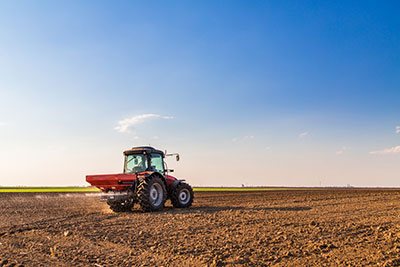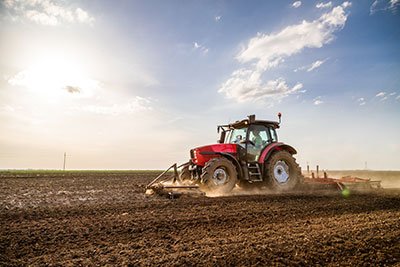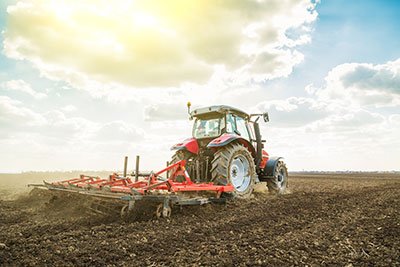Whether you’re an experienced agricultural worker or someone looking to buy their first tractor, you can avoid costly mistakes with the right knowledge.
Buying a new machine is never easy and it’s important to know the dos and don’ts of tractor purchasing before making any decisions.
We will cover the best guidelines for avoiding common buying mistakes when purchasing a tractor.
We’ll offer advice on budgeting, researching different models, and what features are most important. You can rest assured knowing that your investment was worthwhile!
Take away key points:
- The guide lists the beginner mistakes when buying tractor models, by Tractor Mike standards
- Learn the proper standards before carrying on with the purchase to ensure the best performance
- Learn solutions to make sure your purchase is optimal
Table of Contents
Tractor Mike suggests solutions to five common mistakes when buying machines
If you want to know about different common mistakes newbies make in the tractor industry, refer to the guide below.
We have some of the beginner mistake types you should learn in advance.
1. Choosing the smaller tractor than you need

Many tractor buyers purchase a sub-compact tractor when they have acreages or tight spaces to work in, but this can be a mistake if you intend to brush hog large fields.
Sub-compacts are not usually equipped with cabs, and the air conditioner for such a cab will take up to 10 horsepower of your engine’s power, leaving limited energy for other activities.
To sufficiently perform these tasks, at least a 28-40 HP tractor is recommended – bigger being better – if you require an enclosed space.
2. Overloading your tractor with multiple attachments (loader bucket, etc.)
It is important to match the width of the bush hog cutter to that of your loader bucket; a five-foot cutter is too much for a sub-compact tractor. The right cutter must match the same width as a loader bucket in your small tractors.
Additionally, make sure the size of your brush hog is appropriate for the horsepower of your tractor and the material you want to cut. Each brush hog lists what size material it is rated for and how much PTO horsepower is necessary to pull it.
Do not go with too small equipment either, as machines will be underpowered and unable to properly cut.
3. A cab tractor is not the best solution for all terrains
When brush hogging a big field, cabs are great and provide much-needed relief on hot, sunny days.
However, cab models should not be taken into wooded areas for different operation types. The risk of striking a low branch and shattering the glass is too high.
To avoid this situation, invest in a pole saw or tree shear to prune all lower limbs before taking your cab tractor off-road. Also, avoid traveling across a steep slope or traveling downhill until your bucket is up. The same rules apply to the front-end loader.
4. It might be challenging to compare cutter brands
When choosing a brush hog, it can be difficult to compare different brands. Many companies offer three types of cutters: economy (cut up to 1 inch), mid-range (up to 2 inches), and heavy-duty (up to 2.5 or 3 inches).
Comparing the economy cutter of one brand with the medium-grade cutter of another is like comparing apples to oranges. To ensure customers get the right tractor equipment, seek advice from an experienced dealer (Kubota, John Deere, Massey Ferguson, New Holland) that you trust and buy the brand they are selling.
5. Do not rush to buy a tractor

When it comes to buying a tractor, it’s important to take your time and do your research. Customers rushing into the purchase of a tractor result in not getting the best machine for their needs or paying too much for something that isn’t suitable for the job.
Before you buy, consider how much acreage you’ll be working on and what types of operations you’ll need a tractor for. At the very same time, you must think about the priority of tasks that will be done with the tractor, such as mowing, tilling, hauling, etc. Knowing this information ahead of time will help you narrow down what type of tractor is best for your needs.
Another example to consider when buying a tractor is comfort and safety. Search for an operator station that makes the machine and attachments easy to operate even if you’re a first-time owner. Make sure there is adequate space between pedals and fenders so that you can work comfortably without feeling cramped.
It’s also important to inspect any used tractors before purchasing them. Be careful and check for peeling paint, dents, or other signs of wear and tear that could indicate potential problems down the line. Otherwise, you will pay extra costs to repair the damaged tractor parts in the future and your equipment cannot perform on your land instantly.
Additionally, make sure any loader produced by the same manufacturer as the tractor is performance-matched to a particular model tractor. Thus, your tractor equipment runs efficiently and safely on each terrain.
Finally, consider engine size when selecting a tractor – higher horsepower usually means more power, speed, and fuel. But, one of the helpful farmer salesmen can help you determine what size engine is best for your needs, land, and terrain. The experts will prevent you make a mistake and save you money.
Additional purchasing mistakes
Here are the extra mistakes farmers make. Ensure you avoid them for advanced performance:
1. Ignoring your implements’ hydraulic system
Taking care of your tractor is important, and if you’re a new tractor owner, you might want to be aware that leaving certain implements in an elevated position when the engine is off can be dangerous.
Hydraulic systems ‘leak‘ over time when they are not in use, and there are acceptable rates of leakage for each implement.
To ensure safety, it’s important to let the levers/joysticks drop to the ground after turning off the engine and wait until they stop moving and the load pressure is released.
Additionally, the stabilizers of any backhoe must be completely stable before parking your tractor anywhere. Otherwise, drywall or other items could be at risk of being damaged.
2. Choosing the wrong size of the PTO shaft
If you’re planning on using a tractor implement, it’s important to pay attention to the PTO shaft that connects the implement gearbox to the tractor. The shaft that comes with your implement may require being shortened for a proper connection between the implement and your particular tractor.
A too-long shaft can damage both the tractor’s PTO and the implement’s gearbox. Sub-compact tractors and compact tractors usually need shorter shafts.
But, bigger PTO horsepower tractor implements come with longer shafts so they can fit on a range of tractors. However, each brand and model requires different length shifts, so it’s best to check with your dealer before taking the implement home.
FAQs
What questions to ask when buying a tractor?
Here are four questions to ask when shopping for a tractor:

What type of terrain will the tractor be used on? Different tractors have different capabilities, so it’s important to know what kind of terrain you’ll be using the tractor on.
What features do you need? Tractors come with a variety of features, such as power steering, adjustable seats, and multiple speed settings. Consider which features are most important for your needs.
How much horsepower do you need? The amount of horsepower required depends on the size and weight of the load that will be towed by the tractor. Make sure to get a model that has enough power for your needs.
What safety features should I look for? Safety is always a priority when operating any machinery, so make sure to look for tractors with rollover protection systems (ROPS) and other safety features like seat belts or enclosed cabs.
How many hours on a used tractor is good?
Generally speaking, 4 or 5 thousand hours is considered a great deal for a used tractor. When it comes to purchasing a used tractor, the engine should still work after 5,000 to 10,000 hours.
Are tractor prices negotiable?
Yes, tractor prices are negotiable. Depending on the size of the farm and other factors, you can negotiate with a dealer to get a better price for your tractor. Many dealers offer discounts and package deals that can help you save money when buying a tractor.
For example, some dealers offer Kubota tractor packages that include additional items such as loaders and trailers at discounted prices. Additionally, many dealers may be willing to lower the price if you purchase multiple tractors or accessories from them.
What to check when buying a used tractor?
Here are some tips to consider when buying a used tractor:
Check the safety features – make sure the tractor has all of the necessary safety features in place and that they are working properly.
Do a visual inspection – take the time to inspect the tractor for any signs of wear or damage. Look at all of the components and check for any rust or corrosion.
Check the water pump – make sure that the water pump is functioning properly and that there are no leaks or broken hoses.
Check engine performance – start up the engine and listen for any strange noises or vibrations that could indicate an issue with the engine.
Review maintenance history – ask about any previous maintenance done on the tractor and make sure it was done correctly and regularly.
Consider hours used – find out how many hours have been put on the tractor since it was purchased, as this will give you an idea of its condition and how much life is left in it.
Will tractor prices go down?
It is difficult to predict whether tractor prices will go down in the future as many factors can affect the price of a tractor such as inflation and market demand.
However, some manufacturers offer package deals or discounts on certain models which could help bring down the cost of a tractor. Additionally, older models may be cheaper than newer ones due to depreciation over time.
Conclusion
There are multiple mistakes Tractor Mike suggests you must avoid when buying machines. Read them thoroughly to ensure the best use and no extra costs when buying machines.
